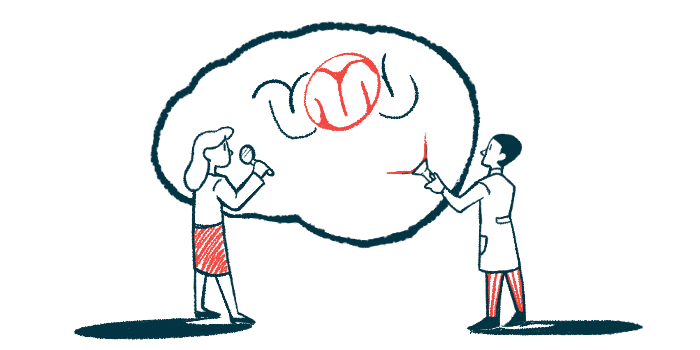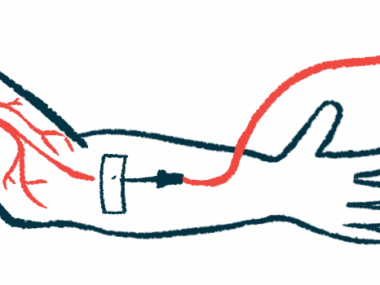Partnership will advance platform to help therapies reach brain
The technology could impact lysosomal storage disorders such as Fabry disease
Written by |

Chiesi Global Rare Diseases and Aliada Therapeutics are teaming up to advance a blood-brain barrier (BBB) crossing platform technology to deliver therapies for lysosomal storage disorders, including Fabry disease.
The BBB is a semipermeable membrane that limits what substances can pass from the bloodstream into the brain. As a result, certain medications can’t reach it.
Because many lysosomal storage disorders affect the central nervous system (CNS, the brain and spinal cord), treatments should also target the CNS. The collaboration will help leverage Aliada’s platform to efficiently deliver therapeutics across the BBB.
“With this collaboration, we are expanding our strategy and presence in BBB-crossing technologies and hope to leverage our know-how in [lysosomal storage disorders] to support the development of an effective and differentiated drug delivery platform,” Giacomo Chiesi, head of Chiesi, said in a press release “Our commitment to the development of new treatment options for people living with lysosomal storage disorders (LSD) is global, as evidenced by recent regulatory approvals.”
Crossing the BBB
Lysosomal storage disorders are inherited metabolic diseases that feature an abnormal accumulation of various toxic materials in cells because of enzyme deficiencies.
Fabry disease is a lysosomal storage disorder caused by mutations in the GLA gene, which provides instructions to produce the alpha-galactosidase A (Gal A) enzyme. It breaks down fatty molecules, mainly globotriaosylceramide (Gb3).
Mutations lead to deficient enzyme activity and result in the toxic accumulation of Gb3 inside cells, causing tissue and organ damage. The disease mainly affects the heart, nervous system, and kidneys.
Treatments are mainly based on enzyme replacement therapy, which delivers a functional Gal A enzyme into patients’ bloodstream. These treatments don’t cross the BBB to reach the CNS, however.
“We are excited to partner with Chiesi to develop improved therapeutics for patients living with [lysosomal storage disorders], who currently lack treatments that can readily access the brain,” said Adam Rosenberg, CEO of Aliada.
The company has developed the Modular Delivery (MODEL) platform, which is based on a brain’s endogenous transport mechanism to carry large molecule therapies across the BBB.
As part of this specialized transport, outside molecules or therapies bind to receptors, such as transferrin and CD98, at the surface of cells in the BBB and are transported into the brain. Using these mechanisms, the enzymes, antibodies, or other therapeutic molecules can be delivered to the brain.
The strategy both improves the delivery of therapies to the CNS and has downstream effects, making it advantageous over other approaches.
The two companies will collaborate by conducting animal studies that test the delivery of therapies to the brain.
“This collaboration will allow Aliada to demonstrate the diverse capabilities of our MODEL platform, which enables us to efficiently transport a diverse range of therapeutic cargoes into the brain,” Rosenberg said.





